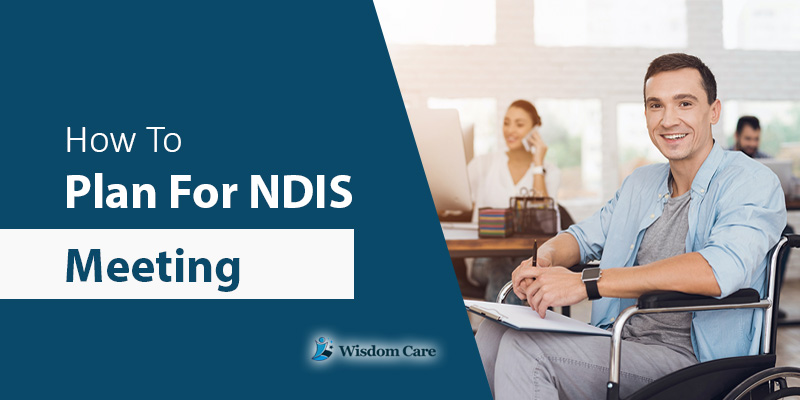How To Plan For NDIS Meeting

Preparing for an NDIS meeting? The NDIS meeting is unique to everyone. It is a plan detailing your plans for the future and the support you need as a person with a disability to help you achieve your goals. Once you know that you are eligible for NDIS funding, you will need to have a planning meeting with a Local Area Coordinator or Planner.
Planning for Your NDIS Meeting
A meeting can be quite daunting for some but the NDIS planned meeting is vital to ensure you get the best possible NDIS plan. Here are helpful tips to help you prepare for your plan meeting.
1. Getting ready for your NDIS meeting
It is important to write down your current circumstances. The more your planner knows about your situation, the more they will be more informed. When getting ready for the planning meeting, you have to get your paperwork in order. Bring the paperwork to your planning meeting to help your planner know and understand as much about you as possible. The paperwork helps your planner understand the functional impact of your disability and the personal circumstances of your everyday life. It’s easier for planners when all this is written out as well as meeting you.
Some examples of documentation to bring include letters from your doctor, a letter from therapist, psychologist or any other health professional. Advocate letters, school or workplace letter, recreation program, hobbies, community support letter, list of places you normally visit or like to visit and their significance.
2. Tell your story
Once you have all your documentation that you deem to be important. It is a great opportunity to tell your story in your own narrative. Like every story, your story should have an introduction, middle and an End. You can get your family, friends, interpreters or someone you feel comfortable with, to assist you to tell your story. The most important person in the planning meeting is you as the participant. Feel free to take your time. Inform your planner about your daily routine, the supports you have in place and the support you would like. Feel comfortable to inform your planner what you need.
3. Have Clear Goals
Whilst telling your story, it is important to focus on your goals. What do you want to achieve or what sort of support do you need to help you achieve your goals? It is important to have goals. It is also important to know why these goals are important to you. For example, going to the library or community activities can be related to your social and community participation goals. Attending such activities may help you become more confident and develop independence in social settings in the foreseeable future.
Essentially it is important to ask yourself:
- What activities are important to me?
- What supports do I currently have in place?
- What supports do I need?
- What do I need to achieve (goals)?
- What sort of future do I want to live in?
It is important to consider all the questions above and other important questions
4. Take A Break
Plan meetings can go for an hour or more. It is important to request a break if you feel tired. You can also use this opportunity to talk to your support person, write down potential questions you would like to ask or anything you might have missed that is important to you.
If you need help preparing for your plan meeting, feel free to reach out to Wisdom Care and will have one of our consultants assist you in the process. Contact us for more information
Our Support Services
About us
At Wisdom Care, we pride ourselves in helping you implement your NDIS plan: by providing tailored services, experienced support workers and connecting you to suitable Allied health professionals.



